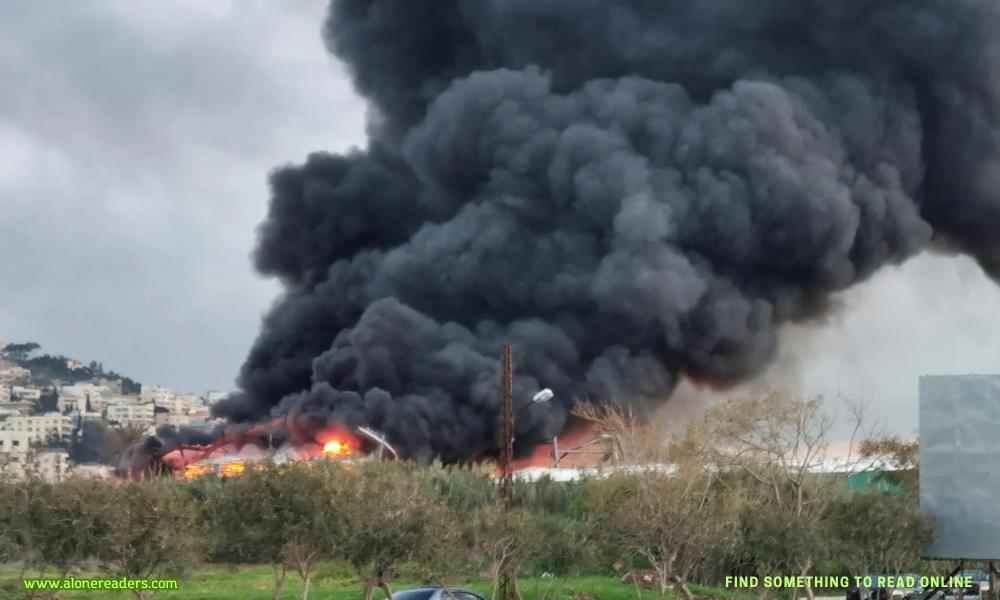
In a significant escalation of regional tensions, Israeli forces conducted a series of airstrikes in Lebanon, specifically targeting positions held by Hezbollah, a militant group with deep ties to Iran. The airstrikes mark a critical moment in the ongoing conflict between Israel and Hezbollah, raising concerns about the potential for a broader confrontation that could destabilize the Middle East.
The relationship between Israel and Hezbollah has been fraught with hostility since the group's inception in the early 1980s. Hezbollah, which operates primarily out of southern Lebanon, has long been considered a proxy for Iranian interests in the region. The group has been involved in numerous conflicts with Israel, most notably the 2006 Lebanon War, which resulted in significant casualties and widespread destruction on both sides.
The current wave of airstrikes comes amid growing fears of a renewed conflict between Israel and Hezbollah. Tensions have been simmering for months, with both sides exchanging hostile rhetoric and occasional skirmishes along the Lebanon-Israel border. The recent Israeli airstrikes represent a significant escalation, with the potential to ignite a broader conflict that could draw in other regional powers.
The Israeli military confirmed that its air force had conducted multiple strikes on Hezbollah targets in Lebanon. According to military sources, the strikes were aimed at neutralizing a series of military installations and weapons depots believed to be operated by Hezbollah. The targets reportedly included rocket-launching sites, underground bunkers, and communication networks used by the militant group.
Eyewitnesses in southern Lebanon reported hearing loud explosions throughout the night, with several areas engulfed in flames. The Lebanese government has condemned the airstrikes, calling them a violation of Lebanon's sovereignty and an act of aggression. Hezbollah, in turn, has vowed to retaliate, raising fears of an all-out war between the two sides.
The Israeli government justified the airstrikes as a necessary response to what it described as "imminent threats" posed by Hezbollah. Israeli Defense Minister, Yoav Gallant, stated that the airstrikes were a preemptive measure designed to prevent Hezbollah from launching attacks against Israeli territory. He emphasized that Israel would not tolerate any actions that threatened its national security and warned Hezbollah against further provocations.
The international community has expressed deep concern over the escalating violence between Israel and Hezbollah. The United Nations has called for immediate de-escalation and urged both sides to refrain from actions that could further destabilize the region. UN Secretary-General António Guterres issued a statement expressing concern over the situation, emphasizing the need for dialogue and peaceful resolution.
The United States, a key ally of Israel, has backed Israel's right to defend itself but has also called for restraint. A spokesperson for the U.S. State Department urged both Israel and Hezbollah to avoid actions that could lead to a full-scale war. The European Union has similarly called for calm, with EU foreign policy chief Josep Borrell warning that continued escalation could have catastrophic consequences for the entire region.
Meanwhile, Lebanon has reached out to the international community for support. The Lebanese government has called on the UN Security Council to intervene and hold Israel accountable for what it described as an "unprovoked attack" on Lebanese soil. The Lebanese Prime Minister, Najib Mikati, stated that Lebanon would take all necessary measures to defend its sovereignty and protect its citizens.
The recent Israeli airstrikes in Lebanon could have far-reaching implications for the Middle East. The conflict between Israel and Hezbollah has the potential to draw in other regional powers, particularly Iran, which has historically supported Hezbollah both financially and militarily. Any escalation in Lebanon could also spill over into neighboring countries, further destabilizing an already volatile region.
One of the major concerns is the possibility of a wider war that could involve multiple state and non-state actors. Iran, Syria, and various Palestinian factions could become embroiled in the conflict, leading to a regional war with devastating consequences. Additionally, the conflict could exacerbate sectarian tensions within Lebanon, which is already grappling with political instability and an economic crisis.
The airstrikes also come at a time when the Middle East is experiencing significant geopolitical shifts. The recent normalization of relations between Israel and several Arab countries under the Abraham Accords has changed the dynamics of regional alliances. However, the conflict with Hezbollah highlights the enduring challenges to peace and stability in the region, particularly with regard to Iran's influence and the unresolved Palestinian issue.
Conclusion
The Israeli airstrikes in Lebanon represent a significant escalation in the long-standing conflict between Israel and Hezbollah. As tensions continue to rise, the risk of a broader conflict looms large, with potentially catastrophic consequences for the Middle East. The international community's response will be critical in determining whether the situation can be de-escalated or whether it will spiral into a full-scale war.
For now, the world watches anxiously as the situation unfolds, hoping that diplomatic efforts can prevail and prevent another devastating conflict in a region already plagued by violence and instability.